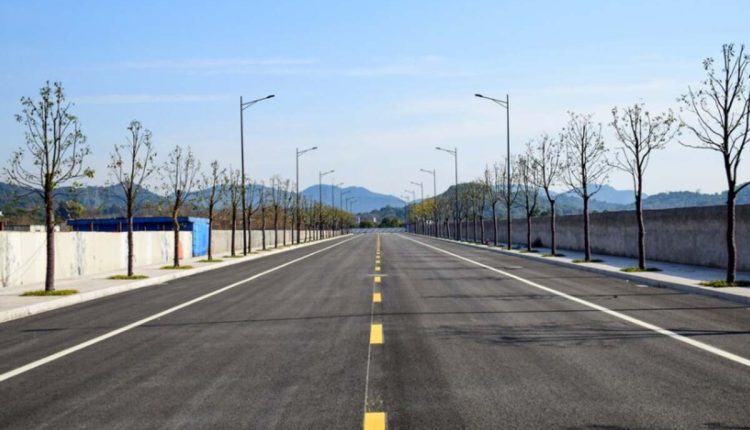How to Achieve Quality Asphalt Paving
Asphalt pavements can be tricky and durable if installed correctly; an experienced asphalt paving contractor understands this fact, as even minor details make a difference in the final product. Choose the best Asphalt Paving Contractors New Orleans.
Smooth transitions between new and existing paved surfaces indicate high-quality work, as they help ensure optimal drainage performance by designing an acceptable slope that directs runoff to drains or catch basins.
1. Smooth Transitions
Asphalt pavement is constructed in layers, known as courses. Each course must be compacted to form an even, consistent surface. When hiring a paving contractor for this process, they must ensure the temperature of the asphalt remains at an ideal level throughout in order to produce optimal quality results.
Paving contractors must carefully consider how their new asphalt pavement transitions with existing surfaces such as streets, sidewalks, or driveways. Any bumps or humps may create uncomfortable driving conditions for vehicles while impeding drainage from the pavement – experts should use milling or another similar technique to ensure these transitions are smooth enough for cars to drive over safely.
Quality asphalt contractors take a cautious approach when building projects, conducting thorough inspections and tests at each stage. In order to deliver outstanding service and products, these companies also comply with all required insurance and licensing regulations.
One of the primary factors contributing to potholes in asphalt surfaces is improper drainage, as this allows water seepage into its foundation layers and freeze/thaw cycles to seep in and create cracking and air pockets, eventually leading to pothole formation. Quality asphalt paving requires sloped surfaces in order to facilitate efficient water drainage – plus, this ensures a longer-lasting and more resilient surface due to traffic damage.
2. Good Drainage
Asphalt isn’t a one-size-fits-all material; its quality can differ depending on your client. Asphalt mixture, thickness, compaction, and surface finish could vary for residential driveways than for highly trafficked highways or parking lots; excellent asphalt contractors understand these various variables when designing solutions to pave them appropriately.
Proper drainage is vital in prolonging the lifespan of any asphalt paved surface. Without it, water could seep beneath the asphalt layer and flood its base and subgrade layers – weakening them over time with traffic pressure exerted upon an already compromised surface, leading to premature wear and structural damage. When the weather turns colder still, this damage accelerates significantly as frozen and thawed water expands the asphalt even more rapidly.
An efficient paving project should include measures for proper drainage by creating a slight slope on the pavement and installing catch basins or French drains to quickly divert rainwater away from structures, helping reduce long-term repair and damage costs.
3. Edge Work
Asphalt paving requires precise measurements and attention to detail in order to create a long-term surface that remains sturdy. A quality job will feature smooth edges, an unblemished finish, and proper drainage to reduce moisture infiltration around its perimeter.
As well, the area being paved must be thoroughly prepared before beginning construction. Any loose soil must be replaced with a durable base and compacted aggregate to strengthen and support the asphalt layer above it; otherwise, heavy traffic and weather will wear it down very quickly.
As soon as any asphalt mix placement or compaction issues arise, contractors should report and address them quickly in order to return material to the specification and avoid costly pay deductions that typically follow when the problem is detected too late for correction on-site.
When selecting a paving contractor, be sure they are both certified and insured. A reputable company should carry both worker’s compensation and general liability policies to protect you in case of an accident. Also, get at least three bids from different contractors so that you have an idea of competitive industry rates in your area; significantly lower-than-average quotes could indicate that they might be cutting corners to cut costs or provide poor-quality results.
4. The Right Materials
Asphalt pavements are constructed using durable material that stands up well under heavy use and traffic volumes. Asphalt offers superior impact resistance compared to concrete while being less susceptible to water accumulation that leads to pothole formation. Although durable asphalt may appear impenetrable at first glance, its longevity depends heavily on the proper mixture and construction techniques used by contractors; an ideal contractor will take great care in selecting materials and creating pavements to withstand years of heavy usage without cracking.
For successful pavement, it is essential to start with a strong base and sub-base. Asphalt must rest on a rock-aggregate base capable of supporting vehicles’ weight; otherwise, wear and tear may damage it over time or cause it to buckle under excessive traffic loads.
Quality paving requires using the correct type of asphalt. There are two primary options: hot mix asphalt (HMA) and cold mix asphalt. HMA is the more widely-used asphalt material and includes coarse and fine aggregate, heated asphalt binder, and water. Cold mix asphalt contains similar components but without heating; it provides more economical paving in colder climates but performs less well under hot temperatures.
Read Also: Real Estate Marketing Software


